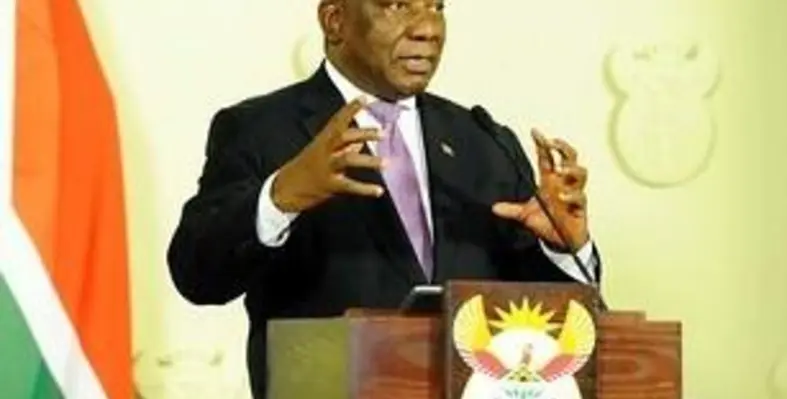South African president and African Union chairperson, Cyril Ramaphosa hosted the Sustainable Infrastructure Development Symposium of South Africa (SIDSSA) to discuss the government’s revised Infrastructure Investment Plan, a public-private initiative to accelerate major building projects in South Africa, and the rest of the continent
The symposium followed weeks of consultations to garner support for the revised Infrastructure Investment Plan, and was attended by more than 680 delegates representing 263 funding institutions across the globe.
African Development Bank president Akinwumi Adesina, AU commissioner for Infrastructure and Energy, Amani Abou-Zeid, World Bank vice-president for infrastructure, Makhtar Diop and South Africa’s minister of public works, Patricia de Lille attended the symposium.
President Ramaphosa said, “The revised infrastructure investment plan was scheduled for launch, before the onset of the coronavirus pandemic, but now it has become even more urgent. Coronavirus will lead to the deepest global recession in the world after World War II, which will have an impact, as deep as the Great Depression of the 1930s. This symposium is not just laying a path for South Africa post-COVID-19, but also paving the way for the future. It represents a new beginning for infrastructure development, which promises inclusive growth, development, transformation and a hope for a better tomorrow.”
“South Africa, within the AU family, has been given the responsibility for championing infrastructure development. It is through these objectives, that we will be able to attain the aspirations we have set out in Agenda 2063,” he shared.
Mr Adesina insisted that investments should be sustainable and lauded the South Africa government for its efforts on developing the renewable energy sector.
“We at the Bank are boldly bullish about South Africa and need to continue to invest in critical areas, and energy is a big one. We have invested US$3.1bn in the energy sector,” Adesina said.
The African Development Bank has invested in a number of renewable projects, including the 100 MW Sere wind project connected to the national grid and the 100MW Xina solar energy project. Around June 20, the AfDB’s total portfolio in South Africa comprised 21 operations, worth US$4.74bn, where 75 per cent of the portfolio was in the infrastructure sector, mainly through loans to state-owned enterprises, Eskom and Transnet. The current portfolio includes 16 private sector operations, which are worth US$2.93bn.
Adesina expressed the need for syndication. The Bank has channelled US$1.3bn in syndicated loans for South Africa to provide capital for Eskom and invest in power transmission infrastructure.
“Infrastructure tends to be concentrated in urban areas and the rural areas are left out. We need to make sure that we have a good infrastructure in the rural areas too, which would then allow food and agribusinesses to develop and create a new economy, so that rural areas become zones of prosperity from being zones of economic misery,” Adesina noted.
Selected SIDSSA projects will be gazetted after the symposium, that have been selected from the initial 177.












